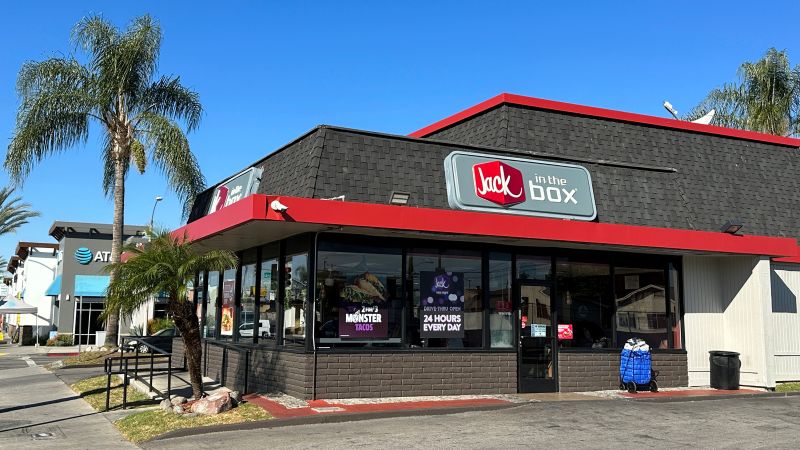In a significant shift within the fast food industry, Jack in the Box, a well-established chain with a rich legacy spanning over 74 years, has announced plans to close around 10% of its locations. The decision to shut down approximately 150 to 200 underperforming restaurants comes as the fast food giant contends with a struggling economy that has led many consumers to tighten their wallets. Additionally, the company is considering the sale of its Del Taco brand, signaling a strategic overhaul aimed at revitalizing the chain’s financial health amidst mounting challenges.
Jack in the Box’s CEO, Lance Tucker, highlighted these closures in a statement made public on Wednesday. The proposed closures are set to range from 80 to 120 locations by the close of this fiscal year, a move Tucker believes is essential for “addressing our balance sheet to accelerate cash flow and pay down debt.” Presently, the chain operates approximately 2,200 outlets, with a majority situated along the West Coast of the United States. Tucker’s financial strategy includes an ambitious goal of eliminating $300 million in debt within the next two years, hoping that a leaner operation will set the stage for “consistent, net positive unit growth” in the future.
Compounding these operational challenges, Jack in the Box is also reevaluating its investment in Del Taco, a Mexican-inspired restaurant brand it acquired just three years ago. Despite initial optimism, the integration has faced significant hurdles, including rising inflation pressures and fierce competition from well-entrenched rivals, such as Taco Bell. During a regulatory call with analysts, Tucker expressed skepticism about Del Taco’s ability to contribute positively to Jack in the Box’s overall financial performance in the foreseeable future, concluding that “it makes sense to move [Del Taco] to another owner.”
The current state of Del Taco’s performance is concerning: Jack in the Box pre-announced its earnings, revealing that Del Taco experienced a 3.6% decline in sales. Furthermore, the parent company’s own sales took a downturn, dropping 4.4% during the second quarter of 2025. This troubling trend has prompted Jack in the Box to halt its practice of providing financial guidance while actively pursuing options for relinquishing Del Taco, indicative of a pressing need to recalibrate business strategies amid an evolving market landscape.
The repercussions of Jack in the Box’s challenges are conspicuous in its stock performance, plummeting by 57% over the past year. The company’s stock was reported to be roughly 7% lower in premarket trading on Thursday, reflecting investor anxiety over its future profitability and market position.
This situation stands in stark contrast to the overall fast food sector, where various chains are experiencing operational strains but not on the same scale as Jack in the Box. For instance, rivals like McDonald’s have reported a sluggish start to the year, while Chipotle noted a recent decline in consumer spending. Yet, Taco Bell remains an outlier, projecting an 8% increase in sales, thanks in part to the introduction of appealing new menu items that have resonated with consumers.
In summary, Jack in the Box’s current strategies to close stores and potentially divest Del Taco reflect broader struggles in the fast food market amid changing consumer behaviors. The company’s ambitious debt reduction goals and the hope for renewed growth underscore the challenges faced by even established names in this highly competitive arena. While the fast food landscape continues to shift, the future of Jack in the Box will depend significantly on how effectively it can implement its restructuring plans and navigate the ongoing economic uncertainties.



